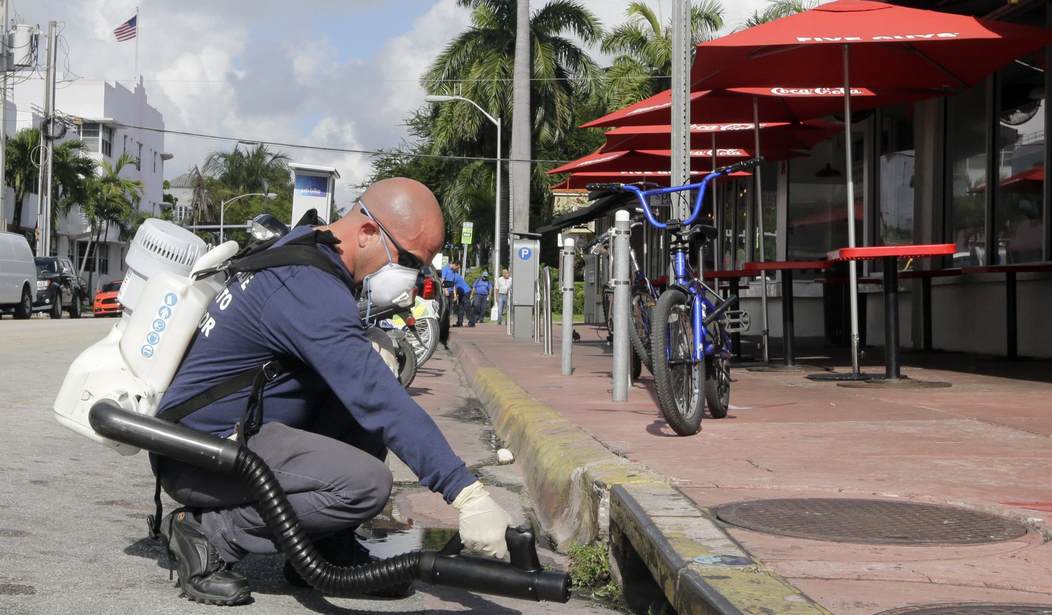Sen. Marco Rubio (R-Fla.) wants federal officials to get ahead of what could be an exacerbated Zika virus crisis with the standing water Hurricane Matthew is dumping on his home state.
As of Wednesday, the Centers for Disease Control and Prevention had received reports of 3,818 cases of the mosquito-borne virus in the United States. Of those, 105 cases were acquired within Florida; the rest were associated with travel abroad.
Thirty U.S. cases of Zika virus were acquired through sexual contact with an infected person, and 837 pregnant women within the U.S. tested positive for the Zika virus, which can cause birth defects such as microcephaly.
In a letter today, Rubio reminded Health and Human Services Secretary Sylvia Mathews Burwell that “the anti-Zika funding package recently passed by Congress and signed into law by President Obama provided $1.1 billion in emergency funding to the U.S. Department of Health and Human Services, the U.S. Department of State, and the U.S. Agency for International Development.”
“Of these funds, $394 million was specifically appropriated to the Centers for Disease Control and Prevention and can be used for mosquito control and surveillance efforts,” he added.
“With Hurricane Matthew having already dumped alarming amounts of rain in Haiti, Cuba and the Bahamas, my home state of Florida is expecting the same. The danger has grown, and there is a high likelihood of significant flooding that results in large amounts of standing water. This would provide a ripe breeding ground for mosquitoes, including some that may be carrying the Zika virus.”
Rubio urged Burwell to “take this emergency into consideration and ensure there are no delays in disbursing additional funds to fight Zika, especially as it relates to mosquito control, which will become especially critical as Florida deals with the aftermath of Hurricane Matthew in the days ahead.”
The CDC issued guidelines on Wednesday on increasing access to contraception in affected areas.
“Helping women who want to delay or avoid pregnancy during the Zika virus outbreak is a primary strategy to reduce Zika-related adverse pregnancy and birth outcomes, including microcephaly and severe fetal brain defects. The best way to reduce the risk of unintended pregnancy is for sexually active women and their partners to correctly and consistently use effective birth control,” said the CDC strategy sheet, which advocated making long-acting reversible contraception — IUDs and implants — easier to get.
The strategies included reimbursing healthcare providers “for the full range of contraceptive services” and supporting “teen-focused” and “youth-friendly reproductive health services.”









Join the conversation as a VIP Member